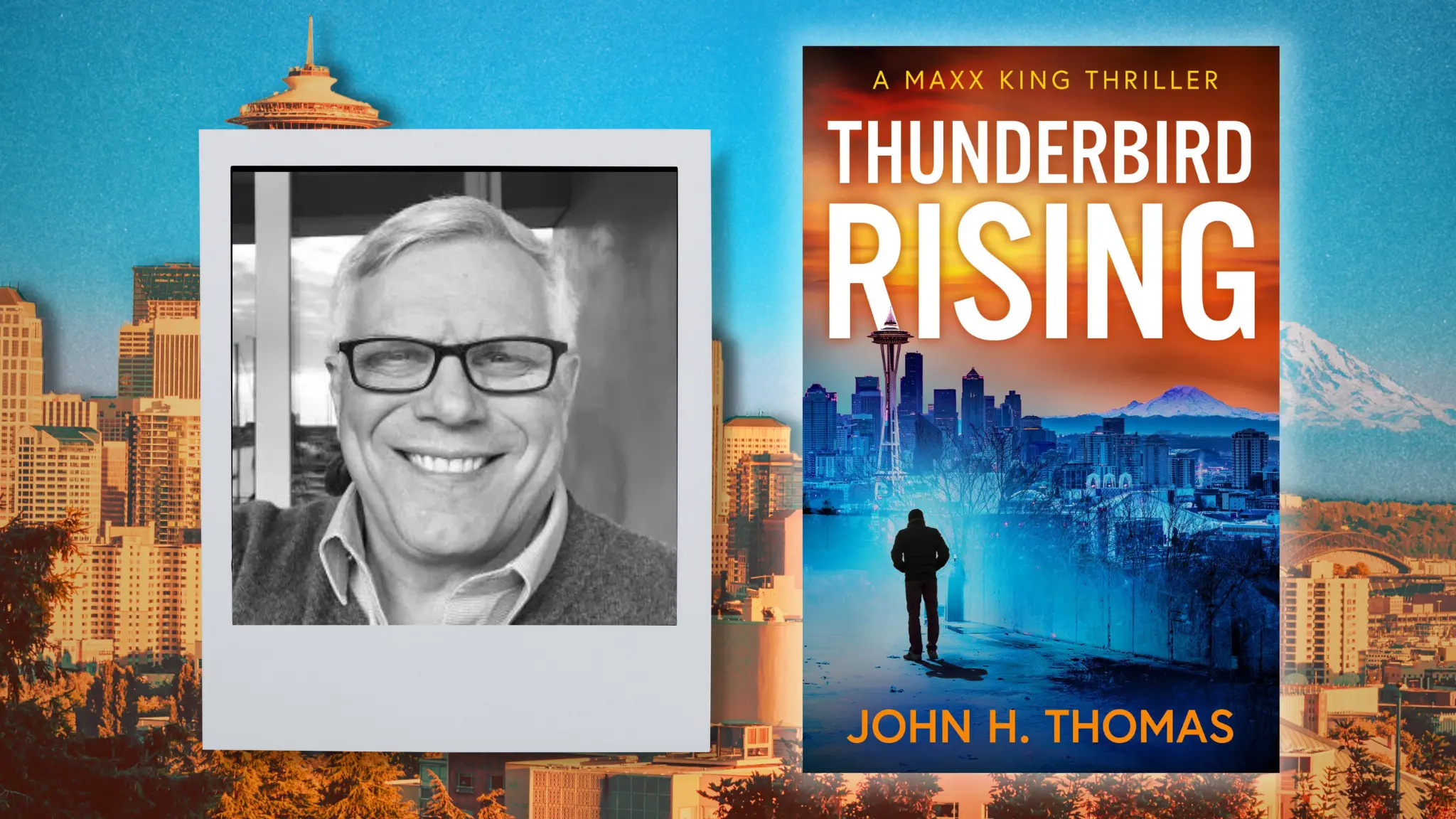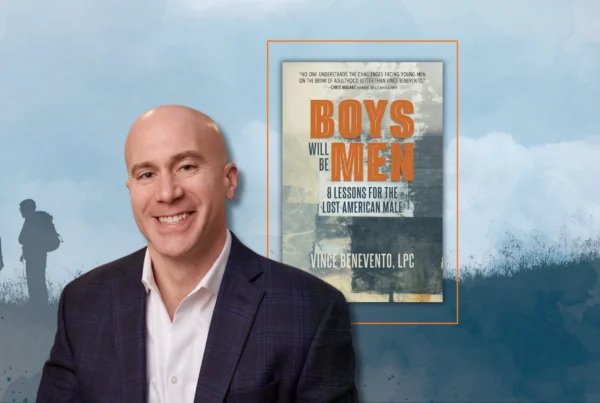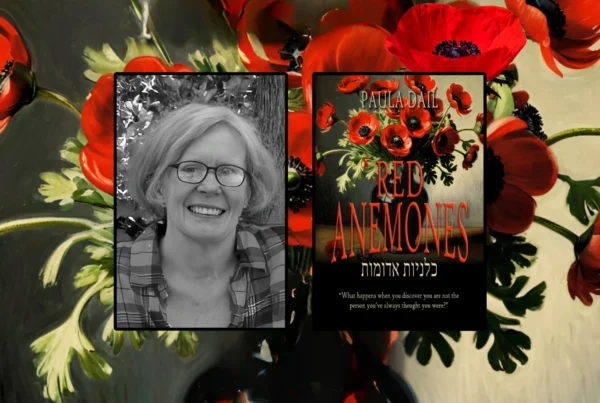John H. Thomas’ Maxx King Thriller Trilogy is an action-packed alternate history tale that is set in Seattle and New York City in September 2001. This trilogy is filled with suspense and high stakes that will blow readers away!
In this Q&A, we talk with author John H. Thomas and his process of writing his trilogy filled with espionage, conspiracies, and of course thrill! Find out what he has planned next for Maxx King
The Maxx King Thriller Series weaves espionage, global politics, and alien technology into one narrative. What inspired you to combine those seemingly disparate threads?
The inspiration to weave espionage, global politics, and alien technology in the series arises from a desire to reflect the real world’s complexity, where technology, power, and ideology converge. This fusion mirrors historical rivalries, such as Cold War espionage, amplified by speculative stakes. The narrative highlights pressing global concerns, particularly artificial intelligence’s dual role as a solution and a competitive weapon. Extraterrestrial technology serves as a metaphor, illuminating how competing civilizations—whether alien or human—use advancements for dominance or survival, echoing our own technological race. This blend creates a relatable yet heightened world where trust and betrayal, across personal and global dynamics, intensify the stakes, revealing how alien influences parallel human struggles under pressure.
There’s a recurring theme of betrayal—between nations, agencies, and even individuals. What do you think betrayal reveals about human nature under pressure?
Betrayal, as depicted in the series, reveals a fundamental tension in human nature under pressure: the instinct for self-preservation often clashes with loyalty and trust. In the series, I positioned trust as the linchpin of relationships, from intimate bonds to alliances between nations. Maxx King’s journey illustrates that trust is not just a passive state but a dynamic force shaping decisions and conflicts. Betrayal, then, is not merely a plot device but a lens through which personal motivations—love, revenge, or survival—can ripple outward, altering the course of larger conflicts. It underscores a truth about human nature: under pressure, people reveal their priorities, and trust, once broken, becomes a catalyst for transformation, for better or worse.
Maxx King finds himself in the middle of global intrigue and personal danger. How did you craft his character to balance military toughness with emotional vulnerability?
Maxx’s military background is essential for establishing him as a credible operative in the high-stakes world of espionage and the combat scenes in Masters of War and Book 3. His ability to confront extreme physical dangers and make split-second decisions under pressure demonstrates this toughness, grounding him as a classic thriller protagonist. To add layers of emotional vulnerability, Maxx was given a rich inner life shaped by personal relationships and past betrayals. His trust issues arise from specific experiences that haunt his decisions. These vulnerabilities manifest in moments of doubt, loyalty to those he loves, and moral conflicts when faced with the broader implications of his missions. His emotional depth complements his stoic exterior by depicting his struggle with the cost of his actions, such as risking personal connections for the greater good. This interplay ensures Maxx is neither a one-dimensional hero nor overly sentimental.
The events of 9/11 are reimagined as part of a broader alien conflict. What challenges did you face in blending real history with fiction in a respectful and compelling way?
Blending the historical tragedy of 9/11 with a fictional conflict meant avoiding trivialization or sensationalism, which could alienate readers or diminish the gravity of the real-world impact. The solution was grounding the alien conflict in human motivations, which mirrored real geopolitical tensions of the time. This made the story relatable, with the alien influence as a metaphor for hidden forces shaping global events, rather than a literal rewrite of history. Additionally, I was careful to take into account reader sensitivity. To accomplish this, I had the narrative focus on the fictional characters, whose personal stakes humanized the events. By emphasizing their struggles, the story honored the real human experiences of 9/11 without exploiting them. The alien perspective became a way to reflect on humanity’s resilience and flaws, making the story both a tribute and a thought-provoking reimagination.
You mention in your preface that minor characters “wrote themselves” into the story. How did that shape the final narrative?
When characters like Li Jing, a seemingly peripheral figure, took on a life of their own, they introduced unexpected dimensions to the plot. Conceived initially as a minor intelligence operative, Li Jing evolved into a pivotal character. Her emergence was driven by her unique perspective as a double agent with ambiguous loyalties, reflecting the series’ core theme of trust. As her role expanded, she catalyzed key plot points, particularly during the confrontation and resolution phases. Additionally, Li Jing’s enhanced role added layers to the global intrigue, as her connections to competing factions revealed the broader stakes of the conflict. Her presence also enriched the emotional texture of the story. Li Jing’s vulnerability, stemming from her dysfunctional relationship with her father, made her more than just a plot device. In the final narrative, Li Jing’s expanded role sharpened the story’s focus on trust and betrayal as dynamic forces.
The idea that aliens see Earth as a “watchtower” is both humbling and eerie. What do you think it says about our role in the universe?
The concept of aliens viewing Earth as a “watchtower” in the series, inspired by historical outposts, offers a dual perspective on humanity’s role in the universe: we are both significant and vulnerable. Historically, watchtowers were strategic vantage points, often isolated, used to monitor threats or opportunities. In the series, this metaphor positions Earth as a cosmic focal point—perhaps for resources, knowledge, or potential—yet exposed to external forces, echoing themes of trust and conflict. This perspective humbles humanity by decentering us; we are not the universe’s protagonists but a pivotal outpost in a larger narrative, much like Maxx King navigating global conspiracies. Yet, it elevates our significance, suggesting our choices—how we handle trust, technology, or conflict—could ripple beyond our planet. Drawing from historical watchtowers, which often determined the fate of empires, this metaphor implies Earth’s role hinges on navigating internal and external pressures, making our capacity for betrayal or cooperation a universal concern.
Maxx and Gabby’s relationship is tested through repeated trauma and loss. How do love and loyalty survive in a world built on secrecy and danger?
Maxx, initially lacking the relationship skills to navigate this complexity, relies on Gabby’s steadiness to anchor their connection. Maxx’s military toughness, honed for survival in global intrigue, leaves him ill-equipped for emotional intimacy. His early struggles with vulnerability make him prone to distancing himself during crises. Trauma exacerbates this response, as Maxx’s instinct is to compartmentalize rather than confide. Love and loyalty survive in this treacherous world because Gabby’s maturity transforms Maxx’s limitations into growth, proving that trust, even when tested by loss and deception, can be rebuilt through mutual commitment. Their relationship becomes a microcosm of the series’ theme: trust, nurtured under pressure, can defy the odds.
How did your vision for the Maxx King series evolve from Thunderbird Rising to Masters of War and beyond?
The series was always intended to be a single, unified story. I parceled the narrative into a trilogy when I realized it would be too long for a single book. I built the trilogy’s structure on the elements of a three-act play: Setup, Confrontation, and Resolution. This structure aligns with the focus on trust and conflict, where Thunderbird Rising sets up the competing dynamics, and Masters of War escalates personal and global stakes.
With Book 3 on the horizon, what can readers expect next in the evolution of this story and its characters?
Book 3 unveils the consequences of the characters’ actions and resolves the central conflicts, illustrating the fallout of broken or restored trust.
 John H. Thomas lives in the Seattle area with his wife and the world’s sweetest cat: Karmann. Raised in a nomadic military family, he is annoyingly curious, a consumer of whiskey, and a political junky at heart, but his greatest interests are his family and their collective shenanigans.
John H. Thomas lives in the Seattle area with his wife and the world’s sweetest cat: Karmann. Raised in a nomadic military family, he is annoyingly curious, a consumer of whiskey, and a political junky at heart, but his greatest interests are his family and their collective shenanigans.




